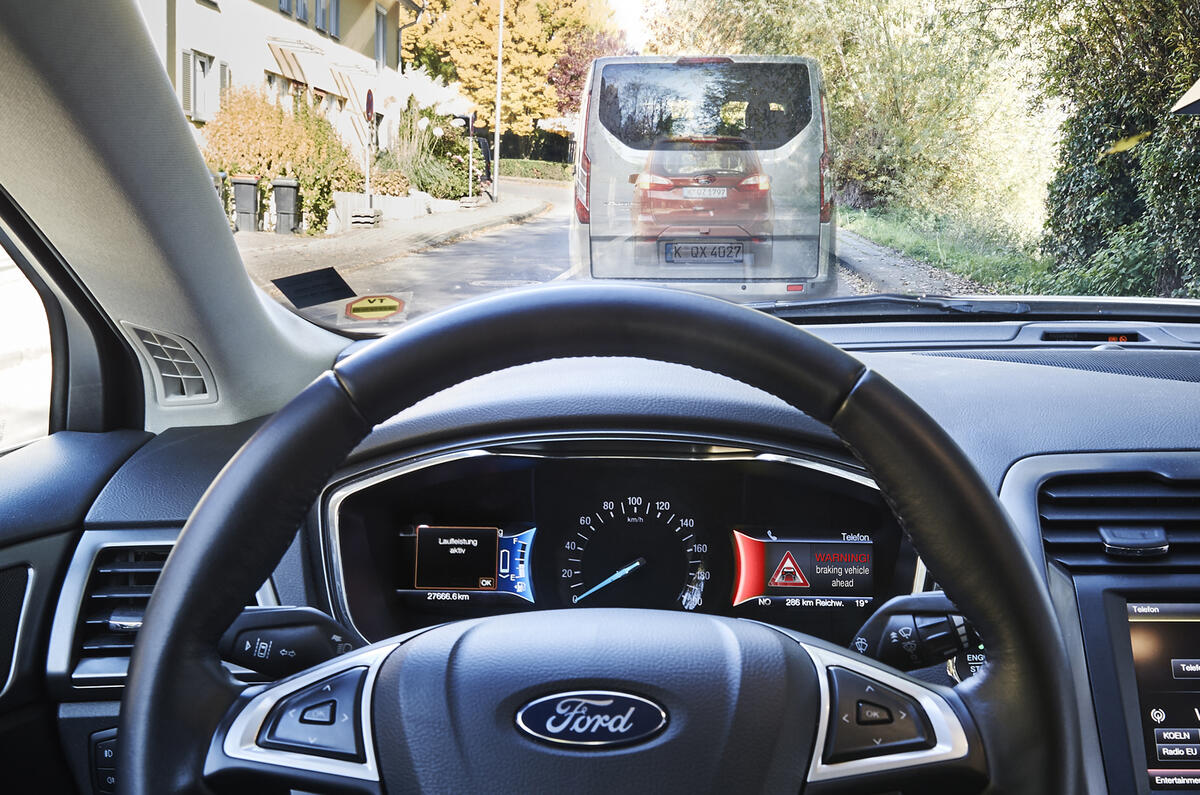Jaguar Land Rover (JLR), Tata and Ford have shown a series of new autonomous technologies as part of the £20m, government-backed Autodrive initiative.
The three companies have developed technologies that be will developed as part of the initiative and which will be trialled on public roads in Coventry and Milton Keynes by the end of 2018.
These include a vehicle system that communicates with infrastructure features such as traffic lights to advise the driver, or the car, which speed to travel to minimise the number of red lights the car must wait at.
The system has been named Green Light Optimal Speed Advisory. It has been designed to reduce waiting times, as well as minimise emissions caused by the engine functions associated with stopping at a red light, and maximise fuel efficiency.
Read more here - who should an autonomous car save in a crash?
If the car is unable to avoid a red light, a control module in the traffic light tells the car and driver how long the wait for a green light will be. Ford claims the average daily driver spends two days per year waiting at traffic lights.
Jaguar Land Rover’s technologies include semi-autonomous systems such as Advanced Highway Assist – a system that allows hands-free and pedal-free driving while the car is able to overtake vehicles safely and automatically on the motorway.
Another system showcased was Electronic Emergency Brake Light Assist, which is like an extension of autonomous emergency braking. The system warns the driver of any heavy braking performed by the car in front. This is especially useful when driving in fog or at any other time when the car in front, for whatever reason, is hard to see. The system can detect other cars at a distance of up to 500 metres.
Read why autonomous cars are inevitable here
JLR said its aim with autonomous systems is to implement them in both on and off-road circumstances, and its ultimate goal with autonomous technology is to “help the driver with the challenging or more tedious parts of driving whilst maintaining an enjoyable driving experience. Our vision is to make the autonomous car viable in the widest range of real life, on and off-road driving environments and weather conditions.”
To help develop its autonomous and connected technologies, JLR will launch a 100-strong fleet of test cars over the next four years. Autocar understands that these will be tested on 41 miles of specially selected public roads in Coventry and Milton Keynes.
The demonstrations were facilitated by UK Autodrive, a group that aims to make the UK a hub for autonomous vehicle development, as well as encourage the integration of connected and autonomous technologies into production cars. The group is funded by £20 million of public money and is made up of tech and automotive firms, local governments and education institutions.




Add your comment